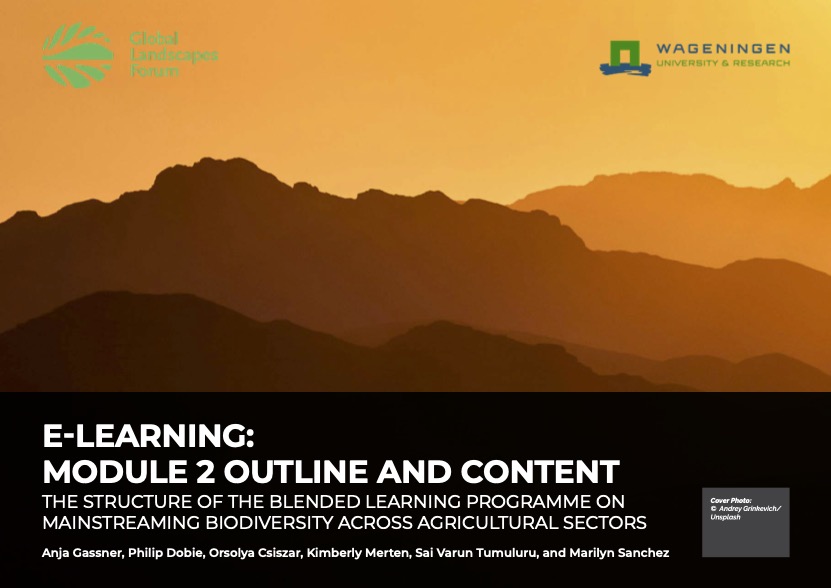REDD+ interventions can help both people and forests adapt to climate change by conserving or enhancing biodiversity and forest ecosystem services. However, additional adaptation measures might be needed, such as the protection of agriculture and livelihoods and the development of fire management strategies. Such measures could support the sustainability of REDD+ interventions and the permanence of carbon stocks by preventing activity displacement and induced deforestation and by limiting or avoiding damage to the ecosystem from extreme weather events. To design community-based adaptation interventions and assess their potential outcomes within the Southern Leyte Province REDD+ project area in the Philippines, representatives from seven upland Barangays (villages) of Sogod Municipality were involved in a bottom-up, stakeholder-focused process. A social return on investment framework was applied. Community members discussed climate and non-climate challenges and the effectiveness of their current coping strategies. Adaptation interventions were then conceived and planned, using future visioning exercises. Two interventions were prioritized: securing land tenure and developing abaca agroforestry (Musa textilis inter-planted with different fruit trees). Challenges and adaptation interventions were also discussed with stakeholders from relevant local- and regionallevel organizations (e.g. provincial and municipal government agencies) during a participatory workshop. Projected future climate scenarios, the sensitivity of key resources and adaptive capacity were also discussed. This resulted in a holistic understanding of the costs, benefits, opportunities and challenges associated with implementing the selected adaptation strategies not only in the target area, but also in the province more broadly. The Southern Leyte Province REDD+ project is implemented by the Deutsche Gesellschaft für Internationale Zusammenarbeit (GIZ) GmbH and the Philippine Department of Environment and Natural Resources (DENR) in collaboration with local government units and local communities under the Project ‘Climate-relevant Modernization of Forest Policy and Piloting of Reducing Emissions from Deforestation and Forest Degradation (REDD) in the Philippines', funded by the German Federal Ministry for the Environment, Nature Conservation and Nuclear Safety (BMU) under its International Climate Initiative. This study was conducted by CIFOR in collaboration with GIZ with a grant from the German Federal Ministry for Economic Cooperation and Development (BMZ).
Download:
DOI:
https://doi.org/10.17528/cifor/004232
Pontuação Altmetric:
Dimensões Contagem de citações:

Ano de publicação
2013
Autores
Pramova, E.; Locatelli, B.; Liss, B.; Ignacio, G.B.; Villamor, M.; Sumaylo, V.E.
Idioma
English
Palavras-chave
adaptation, agroforestry, climate, climate change, community forestry, deforestation, ecosystem services, emissions, environmental degradation, fruit trees, interplanting, investment, organizations, returns, stakeholders
Geográfico
Philippines


















